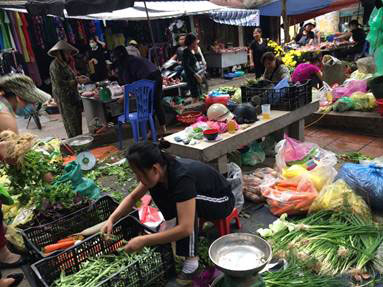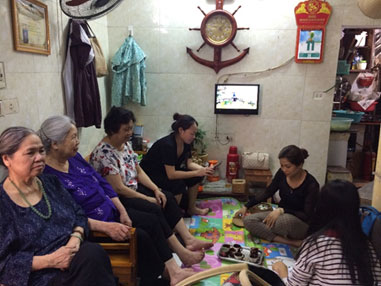Preventing nutrition deserts for the urban poor within the transforming food retail environment in Vietnam.
Nutrition insecurity among a growing number of urban poor in modernizing Southeast Asian metropolises is a critical issue. To enlarge the capacity of local authorities in planning and implementing all-inclusive food-safe and nutrition-sensitive food retailing infrastructures, the research project “Retail Diversity for Dietary Diversity (RD4DD)”, conducted between 2016 and 2018, seeks to answer the question ‘Why do the urban poor eat the food they do’, in the context of transformations in the food retail environment and the organization of daily life.
The project aims to provide an understanding on how the urban poor, within the organization of their daily lives, cope with progressing food retail system transformations and how and to what extent these changes impact their daily dietary intake in terms of nutrition, diversity and food safety guarantees. The research utilizes sequential mixed methods. Field work was conducted in two phases:
- In the first phase, the Fresh Studio research team conducted a retail outlet census and two household surveys with 400 women responsible for household food provision. The surveys explore food safety perception, shopping patterns and practices. Following a 24-hour recall survey, reveals consumers’ nutrition knowledge and attitudes.
- To deeply understand the food practices and daily diet of low income urban consumers, in the second phase, the Fresh Studio team conducted a dozen multigenerational interviews. We visited their homes, observed shopping practices, and conducted semi-structured interviews with intergenerational family members. In the final step, the Fresh Studio team produced an essay film to present key issues drawing from the research. The film was screened at the Multi-stakeholders consultation workshop “Retail Diversity for Diet Diversity” in Hanoi on October 3rd,2018.
The project is awarded within the Drivers of Food Choice (DFC) Competitive Grants Program, which is funded by the Bill & Melinda Gates Foundation and the UK government, and is managed by the University of South Carolina, Arnold School of Public Health: www.driversoffoodchoice.org
Project Partners: Environmental Policy Research Group of Wageningen UR; Bioversity International and Fresh Studio Vietnam.

An informal market in Dong Da district, Hanoi.


